| IN A NUTSHELL |
|
Antarctica, long considered a remote and stable expanse of ice, is undergoing rapid changes with far-reaching implications for the planet. Recent research reveals that the continent’s ice, ocean, and ecosystems are increasingly unstable, posing significant risks to global sea levels, marine life, and climate systems. This transformation challenges previous assumptions that Antarctica would respond slowly to climate shifts. As scientists from leading institutions warn, immediate action is essential to mitigate the potentially irreversible impacts of these developments, which threaten to disrupt ecological and human systems worldwide.
An Interconnected Crisis
Recent studies indicate that the changes occurring in Antarctica are not isolated events but part of a complex web of interactions. The loss of sea ice, warming ocean temperatures, and collapsing ice shelves are interconnected phenomena. When one element shifts, it can trigger a sequence of events that intensifies the overall impact. This interconnectedness creates feedback loops that accelerate environmental degradation, making it increasingly challenging to predict and adapt to these changes.
Dr. Nerilie Abram, a leading scientist from the Australian Antarctic Division, highlights the urgency of the situation. She notes that rapid changes are already evident across Antarctica’s ice, oceans, and ecosystems. Each fraction of a degree of global warming exacerbates these changes. The West Antarctic Ice Sheet, in particular, is a focal point of concern. Its potential collapse could result in a sea level rise of over ten feet, posing a significant threat to coastal cities and communities worldwide. Such a rise would have catastrophic consequences for generations to come.
Sea Ice in Retreat
Once viewed as relatively stable, Antarctic sea ice is now experiencing unprecedented declines. These changes extend beyond mere visual shifts observable in satellite imagery. Sea ice plays a crucial role in regulating heat exchange between the ocean and the atmosphere. Its reduction exposes darker ocean surfaces, which absorb more solar energy and exacerbate regional warming. The diminishing sea ice also leaves massive floating ice shelves vulnerable to waves, increasing the risk of collapse.
The slowdown of deep ocean circulation in the Southern Ocean compounds these concerns. This circulation is responsible for transporting heat, carbon, and nutrients between the surface and the deep sea. If these currents weaken, essential nutrients could remain trapped at the seafloor, disrupting marine food webs that sustain a wide range of species, from plankton to whales. The implications of these changes are vast, affecting both local and global ecosystems.
Ocean Systems Under Stress
The changes in Antarctica's environment have direct implications for global ocean systems. Professor Matthew England from the University of New South Wales points out that these changes are already impacting Australia. Rising sea levels, warmer and less oxygenated oceans, and increased regional warming are among the consequences. The Southern Ocean, which currently absorbs a significant portion of the world's carbon dioxide emissions, may lose its capacity to do so, leading to accelerated global warming.
The potential decline in the Southern Ocean's ability to sequester carbon dioxide is a major concern. This ocean acts as a buffer against climate change, and its reduced capacity could leave more heat-trapping gases in the atmosphere. The resulting increase in global temperatures would have far-reaching impacts, affecting weather patterns, ecosystems, and human societies worldwide.
Wildlife on the Edge
The transformation of Antarctica's environment extends beyond physical changes in ice and water. Many animal species rely directly on sea ice and the ecosystems it supports. Emperor penguins are one of the most affected species, as their chicks depend on stable sea ice until they develop waterproof feathers. Early ice breakup can lead to the loss of entire generations. In recent years, multiple breeding failures have been observed across the Antarctic coast.
The threats extend to other species, including krill, seals, and various penguin species. These animals depend on stable ecosystems for food and breeding habitats. Keystone phytoplankton, which form the base of the food chain, are also under stress due to warming waters and ocean acidification. Disruptions at this foundational level have cascading effects throughout the marine ecosystem, threatening biodiversity and ecological balance.
As scientists continue to study the rapid changes in Antarctica, the urgency for global action becomes increasingly clear. The decisions made today will shape the future of this fragile region and its influence on global systems. Will the world respond swiftly enough to prevent irreversible damage, or will Antarctica's transformation become a catalyst for broader environmental upheaval?
Did you like it? 4.7/5 (28)
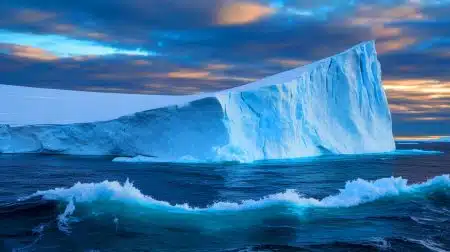
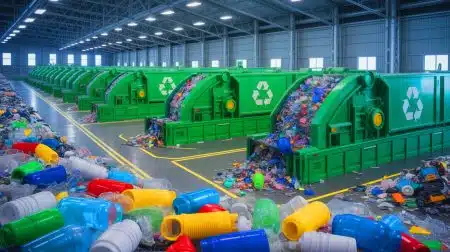


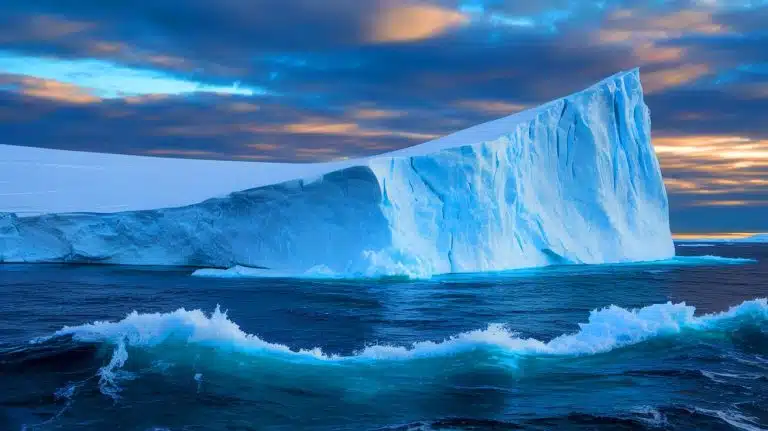
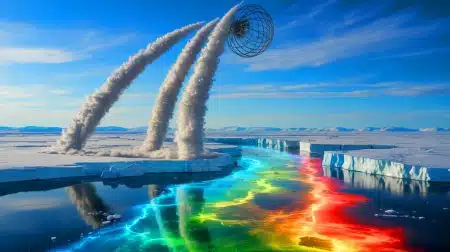
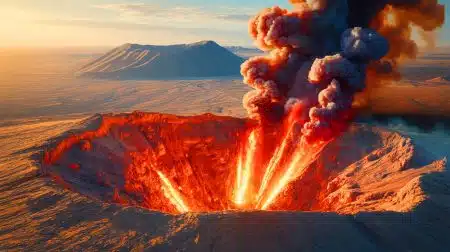
Is there any hope for the emperor penguins? 🐧
Wow, this is terrifying! 😱 How can we stop this from happening?
Wow, this is truly alarming. What can I do to help?
Is there any chance the data is being exaggerated for dramatic effect?
Thank you for raising awareness. More people need to read this!